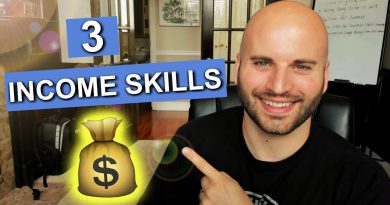7 Marketing Lessons Learned From a Google Employee
7 Marketing Lessons Learned From a Google Employee | Who do you think knows more about marketing than me or even knows more about marketing than other marketers? Sure, people like me and other marketers, we know a lot of information, but there’s someone who has a lot of insight information. Today, I’m going to share seven marketing lessons I learned from a Google employee.
RESOURCES & LINKS:
____________________________________________
Ubersuggest – ubersuggest.org
Expedia – https://www.expedia.com/
Subscribers – https://subscribers.com/
MobileMonkey – https://mobilemonkey.com/
ManyChat – https://manychat.com
____________________________________________
The first lesson I learned was to research new markets.
I always created content in the English market until a Google employee told me that I should create content in German, French, Portuguese, Hindi. These are all regions where they lack content. Sure, in English, it’s a competitive space, but I’ve seen a lot of these regions, even though they’re still competitive markets, they’re nowhere near as hard as to rank in the English markets.
The second lesson I learned is expanding globally doesn’t guarantee traffic.
I used to, when I first did this, I would just translate all my content. I quickly learned from this employee that it needed to transcribe my content, adjust it to that market. You need to do keyword research.
That’s why I have tools like Ubersuggest. We have keyword advice for every single country in different languages because it’s different in every single region, so use it to understand what people are looking for, and then adjust your content, translate, and transcribe it from there.
What I found is if you create bad translated content and you place it up, and when you do this, it can actually hurt your rankings for all your whole site, all your languages, because if you’re using metrics like your click-through rates, your bounce rates are terrible.
The third lesson that I learned, payment plans are a great way to make money.
Now in most English markets, we look at payment plans as, hey, people are paying us money and there’s a good chance they’re not going to do all six payments, 12 payments, whatever the number you’re charging them, there’s a lot of drop off, you lose cash.
So look at the different payment plans that different companies offer, and that’ll give you ideas on which regions you can make the maximum amount of money for because, by reducing the upfront cost and having payment plans, you should be able to drive in many more sales.
The fourth lesson that I learned is by being omnichannel, your CPAs go down.
A lot of us use things like SEO, pay-per-click, and we stop there. You may even use Facebook ads. You may even use radio ads, television ads, billboard ads, but what I found is when you leverage them all at the same time, your CPAs go down.
So with your marketing, consider going omnichannel because, even if some of these other channels don’t produce as good results, by leveraging all at the same time, your overall cost for each of the channels should go down.
The fifth lesson I learned from a Google employee, old is new.
I have a team of three people. All they do is update my old content. The lesson I learned from this employee, Google loves fresh content more than old, outdated content.
The sixth tip, branding is everything.
Small companies are more likely to do something to jeopardize a brand, to make a quick buck because, hey, let’s face it, they don’t really have a brand.
So how do you improve your brand queries? Well, it’s a rule of seven. When someone sees your brand and interacts with it seven times, they’re much more likely to keep coming back and remembering your brand.
The last tip, and this one I experienced firsthand to make sure you have feet on the ground.
Even Google, a digital company, did you know they do grassroots marketing campaigns? They had a bus go all around the United States helping businesses create their website.
If people at Google, which is a digital company, have tested out and tried things like pop-up shops, they do things like have a bus go all around the United States and help small businesses, which tells you that traditional offline marketing still works.
Don’t forget to leverage it. It’s powerful. Things like sending postcards in the mail, back in the day, it was really popular. Nowadays, people are like, “Oh, it can’t do well.” Well, it’s still effective.
Hence, you still got all that junk mail. If it wasn’t effective, people wouldn’t keep sending that stuff to you time and time again.
► If you need help growing your business check out my ad agency Neil Patel Digital @ https://neilpateldigital.com/
►Subscribe: https://goo.gl/ScRTwc to learn more secret SEO tips.
►Find me on Facebook: https://www.facebook.com/neilkpatel/
►On Instagram: https://instagram.com/neilpatel/
#SEO #NeilPatel #DigitalMarketing





